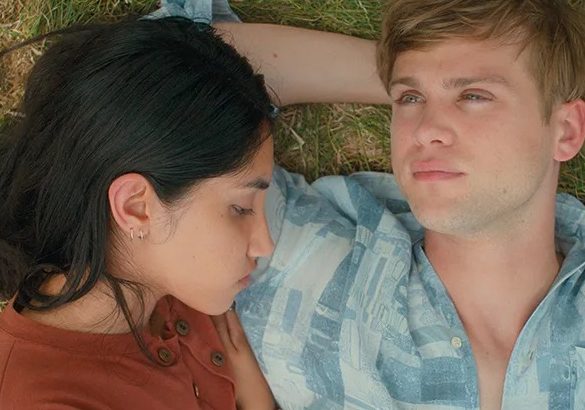One Day is a bestselling novel with a simple but effective premise: a delightful, made-for-each-other couple meet on their last day at university, narrowly miss getting off with one another, then continue narrowly to miss getting off with one another every year for fourteen years until finally, eventually they do.
Actually, I’m not sure about the pay off. I never got round to reading David Nicholls’s book, nor did I catch the poorly received movie version with Anne Hathaway playing the love interest. But I’m keeping my fingers crossed and shall be very disappointed if the dénouement doesn’t deliver what the plot seems to be promising. All right, so the episodes — each set, as in the book, on the same date in successive years — are only half an hour long. But that still makes seven hours of viewing wasted if it all turns pear-shaped. (The sub-editor has informed me that I will be disappointed.)
The settings are immaculately realized; the tone and dialogue rarely strike a false note
I’m currently half-way through and so far, so good. The casting is perfect, the settings — Edinburgh University, Rome, a Greek island, an agreeable house in Oxfordshire, a trendy early 1990s London restaurant — are evocative and immaculately realized; the tone and dialogue rarely strike a false note. My only reservation is that, at times, it feels like indulging in a too-delicious box of chocolates; binge-watching might prove emetic.
Our hero, the almost implausibly sweet, insufferably privileged and outrageously cute Dexter Mayhew is played by Leo Woodall. It’s a measure of how good Woodall is that I didn’t recognize him at all from the twinkly eyed, Essex-boy, Jack-the-lad catamite he played with equally persuasive brilliance in The White Lotus.
Sure, in the first few episodes, he’s only required to play genial eye-candy for the female viewer. But he really comes into his own as his character acquires the brittle carapace of minor celebrity, dead-eyed, insecure, debauched. The reunion dinner in the fashionable restaurant is particularly well done, as he infuriates his old friend by nipping off to the gents for successive lines of coke. Even more so is the one where he rolls up to see his dying mother three hours late, so hungover from last night’s clubbing he can barely keep his vodka and valium down.
Meanwhile, Ambika Mod has just the right face for the cleverer, spikier, wittier partner-to-be Emma Morley — at once alluringly gorgeous and really quite ordinary. Yes, it’s all terribly schematic: the grounding, improving woman from the North come to set our feckless posh boy on the paths of righteousness. But Mod’s performance is so guileless and natural that you don’t feel you’re being played. Apart, maybe, from the one silly, opening scene where we see her attempting the opening lines of her first novel. No beginner writes like that, especially not one with a first-class English degree from Edinburgh.
The soundtrack is as beguiling as you would expect from that golden late-1980s/early-1990s era of mellow indie and electronica: the House of Love, Cocteau Twins, Portishead, Stereolab. Perhaps I’m showing my bias — I’m about the same age as Nicholls — but I think even viewers my children’s age are going to have to admit that everything really was so much better back then.
Of course I’m not suggesting that this period — roughly coincident with Tony Blair’s premiership — was one of unalloyed bliss. But, as this beautiful series magically recaptures, it had a sense of innocence, possibility, even optimism entirely missing from our own. You can see the seeds of cultural destruction being sown — Dexter’s venture into a demeaning, vacuous late-night TV show probably modeled on The Word; the burgeoning obsession with gastronomy (a feature, so I gather, of empires on the verge of collapse) — but not yet the social consequences. In One Day, we’re still in a world where the kids at an average state school like the one where Emma teaches can put on a first rate performance of Oliver!
One thing you notice is just how deleterious have been the effects of the mobile phone. There’s even a joke to this effect. Emma vows never to get one (so intrusive; so unaffordably expensive!) and bets Dexter the price of dinner she never will. Of course she succumbs, as we all did. But some of the vignettes make you realize how much we have lost as a result: eye-to-eye conversations without distraction; those fraught but meaningful payphone moments; never being sure whether someone is in or out, leading to sometimes poignant or embarrassing answer-phone messages; the freedom to be not always within everyone’s reach; the greater reliance on chance encounters.
This article was originally published in The Spectator’s UK magazine. Subscribe to the World edition here.






















Leave a Reply